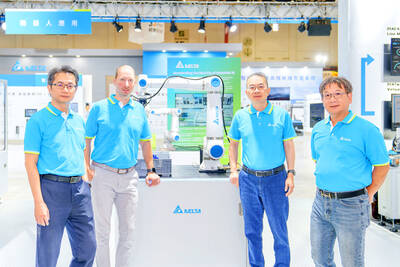Malaysia is scrambling to protect its assets as the descendants of the last sultan of the remote Philippine region of Sulu look to enforce a US$15 billion arbitration award in a dispute over a colonial-era land deal.
In 1878, two European colonists signed a deal with the sultan for the use of his territory in present-day Malaysia — an agreement that independent Malaysia honored until 2013, paying the monarch’s descendants about US$1,000 per year.
Now, 144 years later after the original deal, Malaysia is on the hook for the second-largest arbitration award on record for stopping the payments after a bloody incursion by supporters of Sultan Mohammed Jamalul Alam’s heirs in which more than 50 people were killed.

Photo: Reuters
“It is a fascinating and unusual case,” said lawyer Paul Cohen, a lead cocounsel for the sultan’s heirs from British law firm 4-5 Gray’s Inn Square.
For years, Malaysia largely dismissed the claims, but last month, two Luxembourg-based subsidiaries of state energy firm Petronas were served with a seizure notice to enforce the award that the heirs won in February.
The arbitration ruling in France followed an eight-year legal effort by the heirs and US$20 million in funds raised for them from unidentified third-party investors, according to interviews with main figures in the case and legal documents seen by Reuters.
Malaysia did not participate in nor recognize the arbitration — allowing the heirs to present their case without rebuttal — despite warnings that it would be dangerous to ignore the process.
The claimants, including some retirees, are Filipinos leading middle-class lives, a far cry from their royal ancestors of the Sulu sultanate that once spanned rainforest-covered islands in the southern Philippines and parts of Borneo.
The heirs say that the 19th century deal was a commercial lease, which is why they chose arbitration. They also claimed compensation for the vast energy reserves that have since been discovered in the territory they gave up in Malaysia’s Sabah state on Borneo.
Malaysia said the sultanate ceded sovereignty and the arbitration was illegitimate.
“The arbitration is a sophisticated fiction, veiled as a legal process,” said Uria Menendez, a Spanish law firm representing Malaysia.
Malaysia has obtained a stay in France pending an appeal — a process that could take years — but the award remains enforceable globally under a UN convention on arbitration.
Malaysia honored the colonial-era deal until 2013, when supporters of the late Jamalul Kiram III, who claimed to be the rightful sultan of Sulu, attempted to reclaim Sabah.
Clashes erupted when about 200 supporters arrived in boats from the Philippines and lasted nearly a month.
Kiram, who claimed to be the “poorest sultan in the world,” was not one of the court-recognized heirs who received payments from Malaysia.
The eight claimants in the arbitration — including Kiram’s daughter and cousins — who received the annual payment have condemned the attack.
Up until the intrusion, the Malaysian embassy in Manila wrote a check to the claimants every year for “cession money,” according to checks and correspondence from the embassy to the heirs and shared with Reuters by the heirs’ lawyers.
Then-Malaysian prime minister Najib Razak said that he had stopped the payments due to public anger over the incursion, acknowledging the reason publicly for the first time.
“I felt it was incumbent upon my duty and responsibility to protect the sovereignty of Sabah and the people of Sabah,” he said, adding that he had not anticipated retaliatory legal action.
The claimants, through their lawyers, declined to be interviewed.
Cohen, the heirs’ lawyer, first heard of their claims from an oil-and-gas expert he cross-examined in 2014 in an unrelated case.
Knowing they did not have the financial means, Cohen in 2016 brought on board Therium, a British firm that has bankrolled legal actions by raising money from institutional investors, including a sovereign wealth fund.
Therium conducted nine rounds of funding for the case, during which third-party investors repeatedly assessed its merits, said Elisabeth Mason, a lead cocounsel for the claimants with 4-5 Gray’s Inn Square.
The case has cost more than US$20 million, including lawyers and researchers in eight jurisdictions, she said.
“Investors don’t invest lightly in such matters,” she said.
Therium said it would continue to finance efforts to enforce the award. It declined to provide details.
The heirs notified their intention to commence arbitration in 2017 in Spain and initially sought US$32.2 billion in compensation, the award statement showed.
Malaysia’s first response came in 2019 when then-attorney general Tommy Thomas offered to resume the annual payments and pay 48,000 ringgit (US$10,772 at the current exchange rate) in arrears and interest if the arbitration was dropped.
Thomas believed the demands were “absurd and ludicrous,” but made the offer after colleagues advised him that it was “perilous” to disregard the arbitration as Malaysia’s foreign assets could be at risk, he wrote in a memoir last year.
The heirs rejected Thomas’ offer and the arbitration went on without Malaysia’s participation.
Malaysia successfully challenged the appointment of Gonzalo Stampa as the sole arbitrator in a Spanish court last year.
Stampa argued in his award statement that the courts did not have jurisdiction over arbitration, and moved the case to France to deliver the award — actions that Malaysia says were unlawful.
Stampa is facing criminal proceedings in Spain following a complaint filed by Malaysia. He declined to comment.
By snubbing the arbitration, Malaysia is confined to arguing the procedural validity rather than making a case against the heirs’ claims, said N. Jansen Calamita, head of Investment Law and Policy at the National University of Singapore.
“It was a risky strategy and ultimately, I don’t think it has served them well,” he said.

SETBACK: Apple’s India iPhone push has been disrupted after Foxconn recalled hundreds of Chinese engineers, amid Beijing’s attempts to curb tech transfers Apple Inc assembly partner Hon Hai Precision Industry Co (鴻海精密), also known internationally as Foxconn Technology Group (富士康科技集團), has recalled about 300 Chinese engineers from a factory in India, the latest setback for the iPhone maker’s push to rapidly expand in the country. The extraction of Chinese workers from the factory of Yuzhan Technology (India) Private Ltd, a Hon Hai component unit, in southern Tamil Nadu state, is the second such move in a few months. The company has started flying in Taiwanese engineers to replace staff leaving, people familiar with the matter said, asking not to be named, as the

The prices of gasoline and diesel at domestic fuel stations are to rise NT$0.1 and NT$0.4 per liter this week respectively, after international crude oil prices rose last week, CPC Corp, Taiwan (台灣中油) and Formosa Petrochemical Corp (台塑石化) announced yesterday. Effective today, gasoline prices at CPC and Formosa stations are to rise to NT$27.3, NT$28.8 and NT$30.8 per liter for 92, 95 and 98-octane unleaded gasoline respectively, the companies said in separate statements. The price of premium diesel is to rise to NT$26.2 per liter at CPC stations and NT$26 at Formosa pumps, they said. The announcements came after international crude oil prices

STABLE DEMAND: Delta supplies US clients in the aerospace, defense and machinery segments, and expects second-half sales to be similar to the first half Delta Electronics Inc (台達電) expects its US automation business to remain steady in the second half, with no signs of weakening client demand. With demand from US clients remaining solid, its performance in the second half is expected to be similar to that of the first half, Andy Liu (劉佳容), general manager of the company’s industrial automation business group, said on the sidelines of the Taiwan Automation Intelligence and Robot Show in Taipei on Wednesday. The company earlier reported that revenue from its automation business grew 7 percent year-on-year to NT$27.22 billion (US$889.98 million) in the first half, accounting for 11 percent

A German company is putting used electric vehicle batteries to new use by stacking them into fridge-size units that homes and businesses can use to store their excess solar and wind energy. This week, the company Voltfang — which means “catching volts” — opened its first industrial site in Aachen, Germany, near the Belgian and Dutch borders. With about 100 staff, Voltfang says it is the biggest facility of its kind in Europe in the budding sector of refurbishing lithium-ion batteries. Its CEO David Oudsandji hopes it would help Europe’s biggest economy ween itself off fossil fuels and increasingly rely on climate-friendly renewables. While